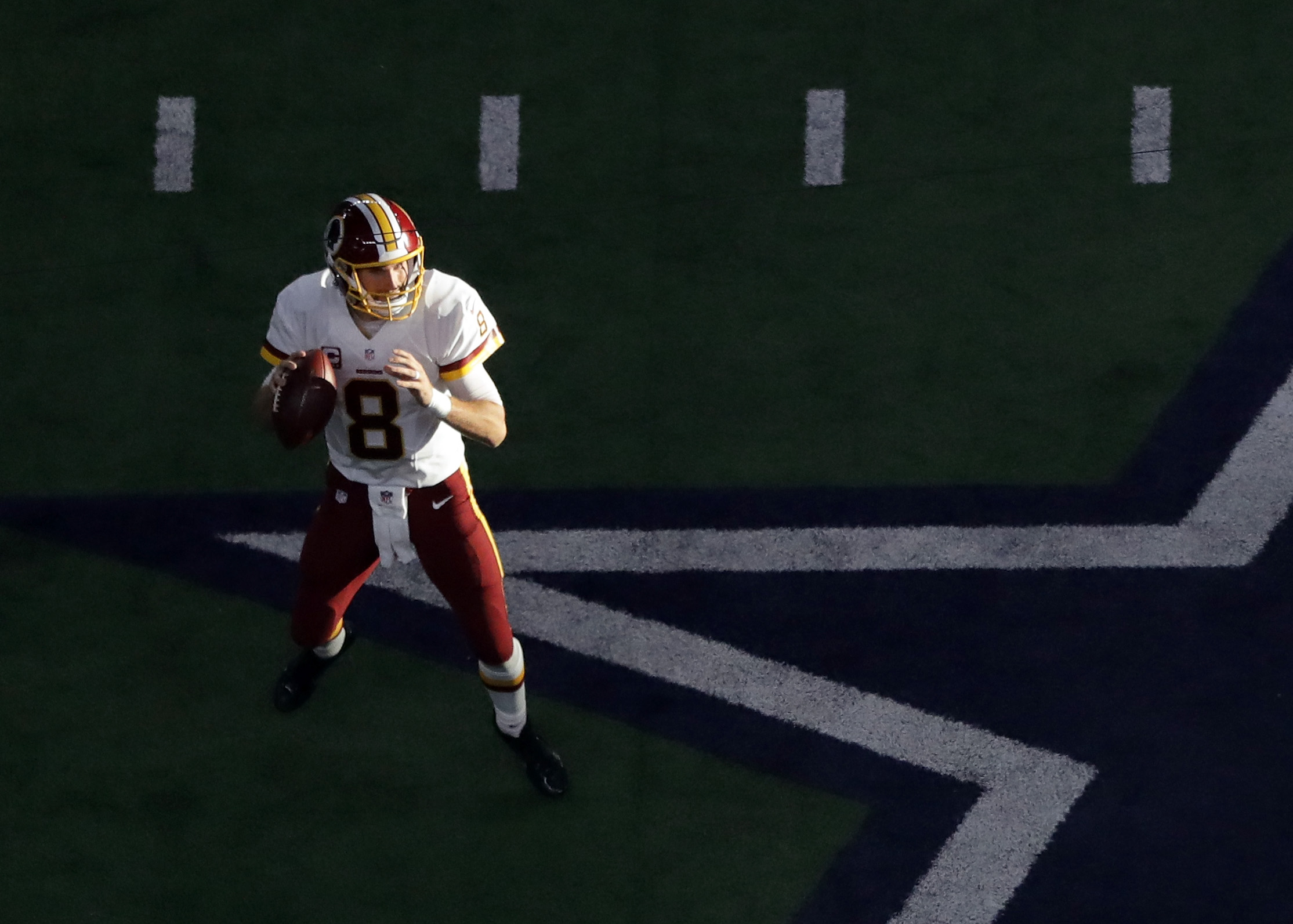Nothing in the NFL is as it seems.
Both head coach Jay Gruden and team president Bruce Allen tamped down rampant, unfounded speculation of trade offers to the Redskins for Kirk Cousins.
Maybe, just maybe, their comments weren’t meant to quiet jittery fans. What if they are meant to calm Cousins to nudge him away from playing hard ball … again?
Kirk signed his franchise tender last offseason within a day of the offer. It may not go as smoothly this time. We are in new territory.
This year, the Redskins will tag Cousins to preserve their exclusive negotiating rights to him. The Redskins already put Kirk through two “contract years,” in 2015 at the end of his rookie contract and in 2016 under the franchise tag.
The Redskins know everything they need to know about Cousins, including his value on the open market.
Then came this “stuff” about exorbitant trade offers supposedly from teams (49ers, Browns) owned by the two least-competent owners in the league.
That gave the front office a new mission, convince Cousins that these stories did not originate with them.
Redskins beat writer Brian McNally tweeted Gruden’s comment about Cousins and closed with the Redskins “have the leverage, for now.”
Jay Gruden also said he anticipates QB Kirk Cousins being back with #Redskins in '17. Seemed confident. They do have the leverage. For now
— Brian McNally (@bmcnally14) January 24, 2017
Hog Heaven wondered about the “Redskins leverage” and asked McNally via Twitter to explain. We think Kirk has considerable leverage.
Twitter follower and co-fan, Ashburning, asked Hog Heaven to explain the leverage we saw for Cousins. Here’s our response in this twitter stream.
There will be high demand for Kirk as a Free Agent. The $$ range is set by market not by teams.
— Anthony Brown, The RedsCommander (@RedsCommanders) January 25, 2017
Teams do not trade players. They trade contracts for their services. Skins offer AND Kirk signs franchise.
— Anthony Brown, The RedsCommander (@RedsCommanders) January 25, 2017
No contract unless both sign the tag that makes Kirk's services 'tradeable.' He has until July/? to sign.
— Anthony Brown, The RedsCommander (@RedsCommanders) January 25, 2017
So leverage is when/if he signs the tag. If Denver comes a calling, SIGN THE DEAL. if Cleveland? Slow your roll.
— Anthony Brown, The RedsCommander (@RedsCommanders) January 25, 2017
Just trying to think this thru to logical conclusion. Also why I'd like to hear @bmcnally14 's thoughts.
— Anthony Brown, The RedsCommander (@RedsCommanders) January 25, 2017
Teams may designate franchise players between February 15, and March 1, 2017. July 15 is the deadline for a club to sign the player to a long-term deal or lock in the one-year franchise agreement.
Bottom Line: The Redskins may have the upper hand after Kirk signs his franchise tender. Kirk’s greatest leverage in a trade scenario comes if he delays signing the tender and then refuses to sign a long-term deal with any team he does not wish to join.
Used in an example: If John Elway and the QB-needy Broncos offer a package of picks, take the deal and run out the door.
If Jimmy Haslam and the Browns, who have $110 million cap space and 10 Draft picks come a-calling, play hardball if you do not want to go to Cleveland. The ‘Skins could accept the trade, but the Browns giving up picks for a player who won’t sign a long-term deal is a non-starter.
Things would be messy at that point, but deals sometimes go down that way.
This post is as speculative and unfounded as stories about potential trades. We are bloggers. It’s who we are. It’s what we do in the dead space after the season.
Add The Sports Daily to your Google News Feed!
